Maryland Asphalt Association Awards CJ Miller for Top Quality
BY AsphaltPro Staff
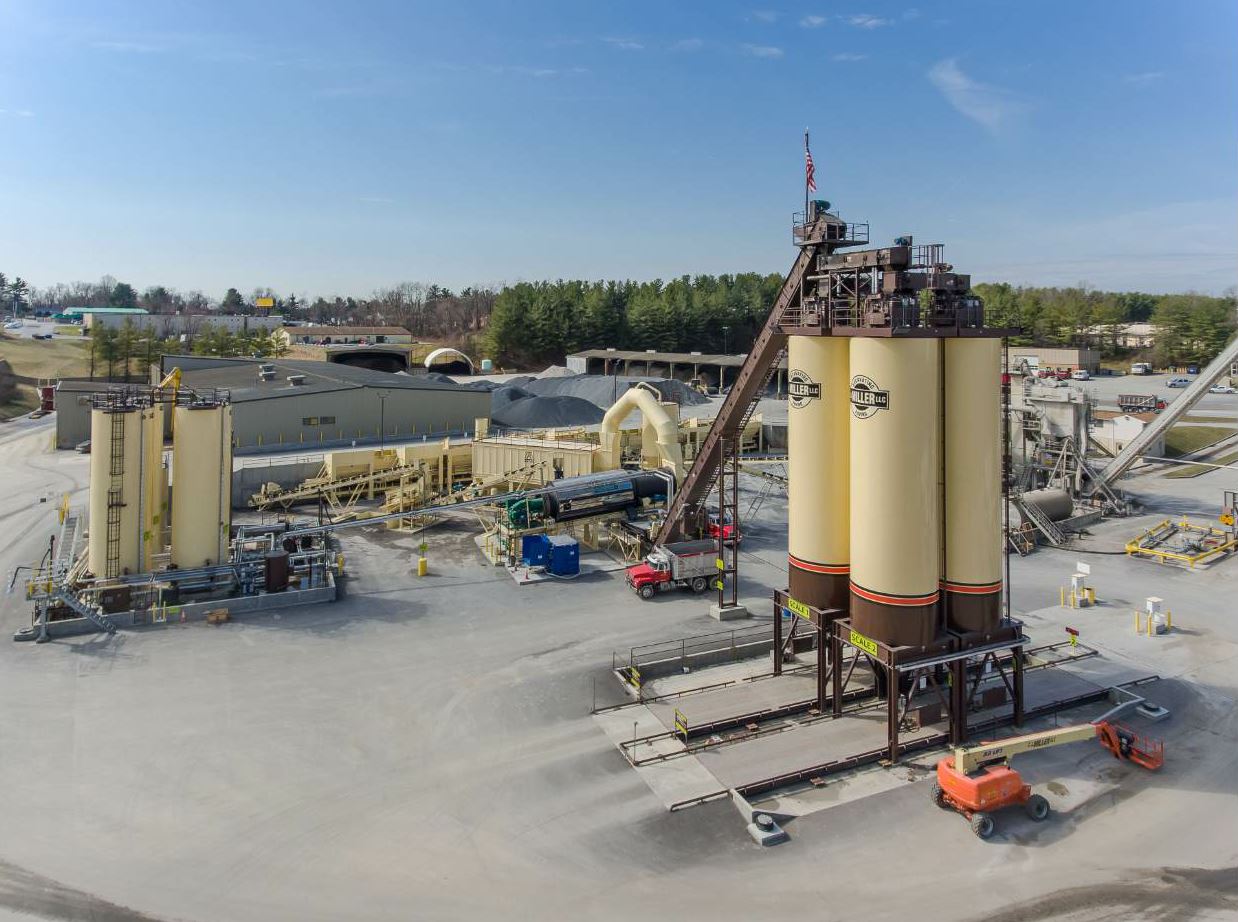
“If you do good work, you’ll never run out of work.”
That’s the company motto of CJ Miller LLC, Hampstead, Maryland.
And that motto is likely why the paving and excavating company received four awards for paving quality at the Maryland Asphalt Association’s 56th annual paving conference in March. The awards come just one year shy of the company’s 60th year in business, demonstrating just how accurate a motto can be.
CJ Miller: 60 Years in the Making
CJ Miller LLC was born from humble beginnings. After a couple years installing septic systems as he finished high school, Charles Jacob “Buck” Miller Jr. officially opened his business in 1959.
In addition to underground utility work, the company originally performed soil conservation projects and constructed farm ponds, but it wasn’t long before CJ Miller expanded its efforts to include asphalt production and paving.
From the time it built its first asphalt plant until now, the company has steadily grown in asphalt production.
CJ Miller built its first asphalt plant in 1970 in Woodsboro, a 1-ton H&B batch plant that was later replaced with a 3-ton Barber Greene batch plant.
Then, in 1971, the company began its asphalt paving operations.
In 1979, the company opened a 3-ton Barber Greene batch plant in Finksburg that is still in use today and began to focus its paving efforts on larger state and county roads.
A third batch plant (a 2-ton Barber Greene) was purchased and added to the property at Finksburg in 1984. Extra production needs dictated that the plant be placed on the same property as the 3-ton Barber Greene plant.
CJ Miller purchased a fourth batch plant, in Westminster, in 1999. After operating it for a few years, it was replaced in May 2002 with a new 500-ton-per-hour Standard Havens drum plant.
By 2015, it was determined that the Finksburg location needed improvements in efficiency and productivity and the 2-ton Barber Greene plant was to make way for a modern facility.
Then, in 2016, CJ Miller celebrated the grand opening of a brand new 400 tph Astec Double Barrel plant in Finksburg, bringing the company’s current number of operating plants to four.
“Launching a new plant enabled us to boost production, and incorporating the Astec Double Barrel Green System allowed us to minimize emissions and cut down on fuel usage, reducing our environmental footprint,” said CJ Miller’s Director of Asphalt Plants Joe Frock. “Seeing trucks waiting to be loaded with HMA had become the norm at Finksburg, and we needed more production, and more storage for it.”
Frock, who has more than 40 years of experience in construction, 33 years at asphalt plants, and 14 years at CJ Miller, sees the new plant as an essential step in the company’s continued growth as it serves Carroll County and additional counties throughout the state.
A Modern Look at CJ Miller
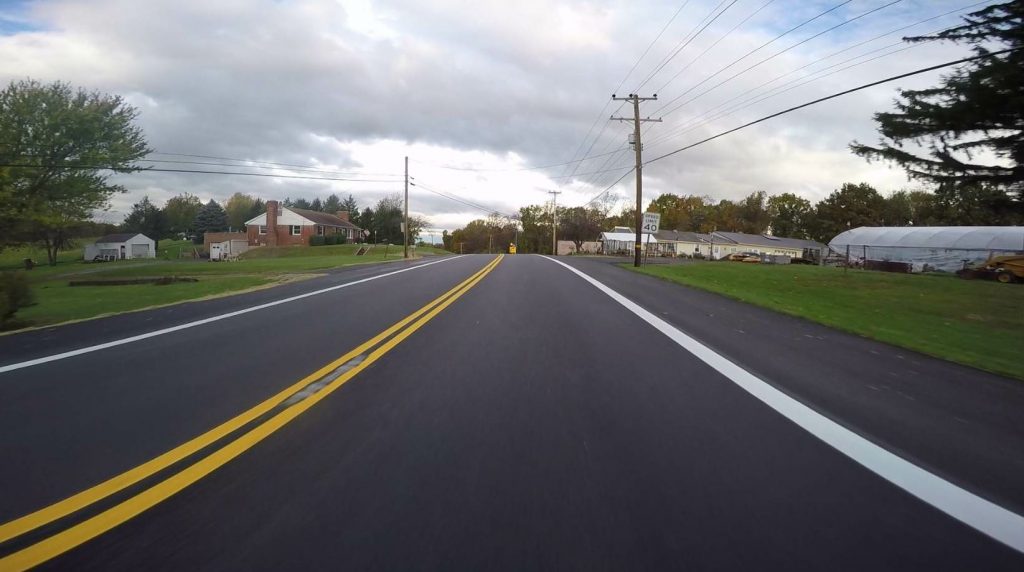
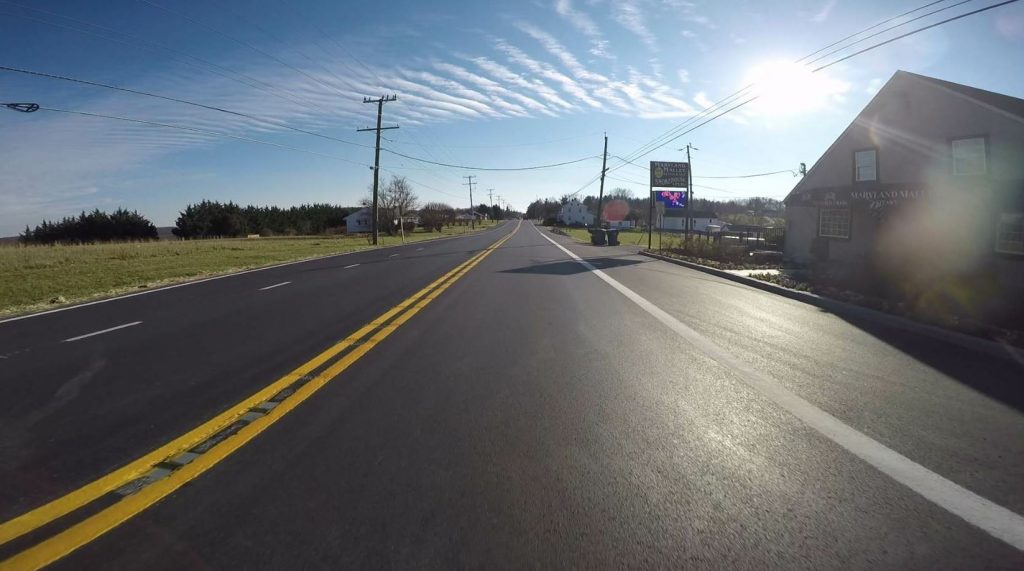
CJ Miller is a full service site contractor, offering clearing, grading, demolition, site utilities, fine grading, curbs, snow removal, soil modification and reclamation, in addition to asphalt production and paving.
Today, CJ Miller is a full service site contractor, offering clearing, grading, demolition, site utilities, fine grading, curbs, snow removal, soil modification and reclamation, in addition to asphalt production and paving. It has more than 1000 pieces of equipment and 500 employees throughout its divisions.
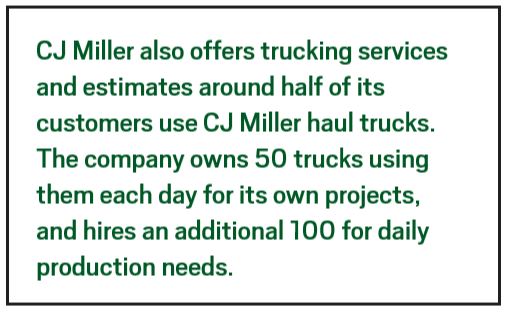
“The only thing we don’t do is build bridges or buildings,” Frock said. Although the company used to be recognized for its grading services, Frock said that today CJ Miller is well-balanced among all of its services.
The company’s mix portfolio contains more than 100 different mix designs, as well as cold patch, curb mix, porous pavement, bulk emulsified tack, virgin crushed stone and sand products, natural stone sands (C-33 and C-144 mason sand), crushed recycled concrete, asphalt millings, as well as various soils and mulches.
Last year, CJ Miller produced around 700,000 tons of asphalt, laying around 400,000 tons with its own crews.
The company’s most common mixes are 12.5-mm or 9.5-mm surface mixes, which Quality Control Manager Mike Utz estimates make up two-thirds of the company’s production.
Utz has been with the company for 16 years. He follows in the footsteps of his grandfather, Elwood Utz, who started working for CJ Miller as a foreman in 1964, and his father, Dennis Utz, who was a paving superintendent.
“We joke that it’s mandatory for our family to work here,” Utz said.
Brothers Charles Jacob “CJ” Miller III and Billy Miller have been at the helm as president and vice president of the company for the last several years, working to grow the company and build on its success.
“We have a very solid reputation in heavy highway and have expanded our residential street projects as well as commercial work,” CJ Miller said, also noting the company’s success in porous paving and soil stabilization.
“Our state highway crews perform excellent work,” Billy Miller added. “They put pride in what they do – making sure the joints look good and the ride is smooth. We try to utilize the latest equipment and make sure everything goes right.”
Award-Winning Team, Award-Winning Quality
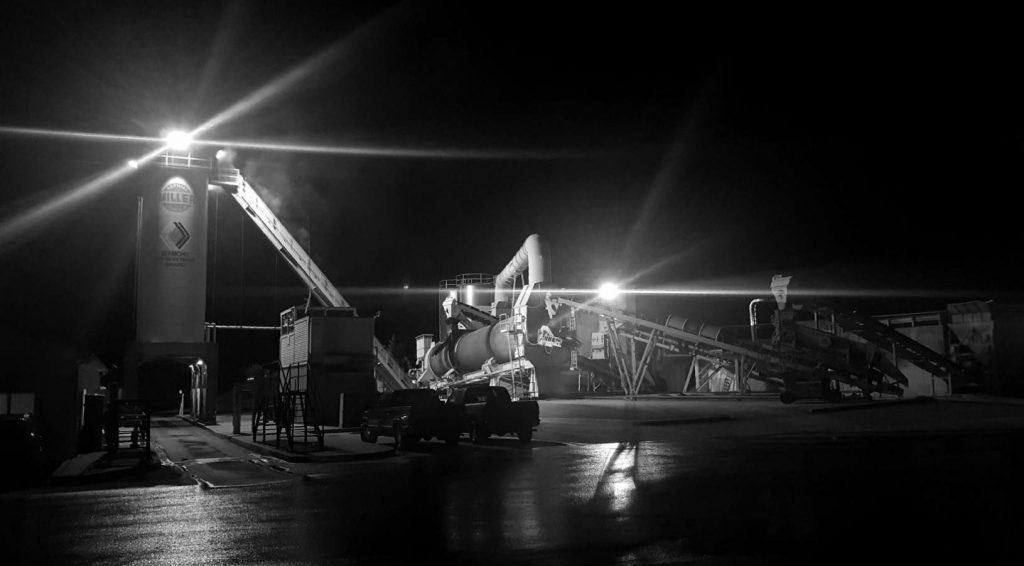
CJ Miller purchased a fourth batch plant, in Westminster, in 1999. It was replaced in May 2002 with a new 500 tph Standard Havens drum plant.
At this year’s MAA paving conference, CJ Miller received four of the conference’s 11 total awards, each for projects the company performed for the Maryland State Highway Administration (MD SHA).
The first award-winning project was a mill and 2-inch overlay on Route 340.
The second was Route 1 in Howard County–a job Frock says they completed in a summer despite the significant hurdle of traffic volume.
CJ Miller also received an award for a mill and 2-inch overlay project on Route 31.
Rt. I-97, for which the company won its fourth award, is unique for several reasons.
The $3.2 million project, which required 20,500 tons of hot mix for its 6.8 total lane miles, was completed in October 2017. The phases of the 6-week project included a 2-inch mill, a significant amount of patching (19 mm), a wedge and level with varying lift depths between one and one and a half inches (9.5 mm), and a 2-inch 12.5-mm level 2 surface course.
The crew paved 12-foot lane widths with its Cat AP1050 track paver, loaded through the company’s Roadtec 2500 transfer machine. All of the mix was supplied by the company’s Westminster asphalt plant, located only three miles from the project. Pat Boone, who has been with company for 10 years, runs the Westminster Plant.
“We had a long haul on this one,” Utz joked. “In all seriousness, our trucks drive through there almost every day, and as much as we always want to pave it right, we especially wanted a project in our own backyard to be a good representation of our work in the community.”
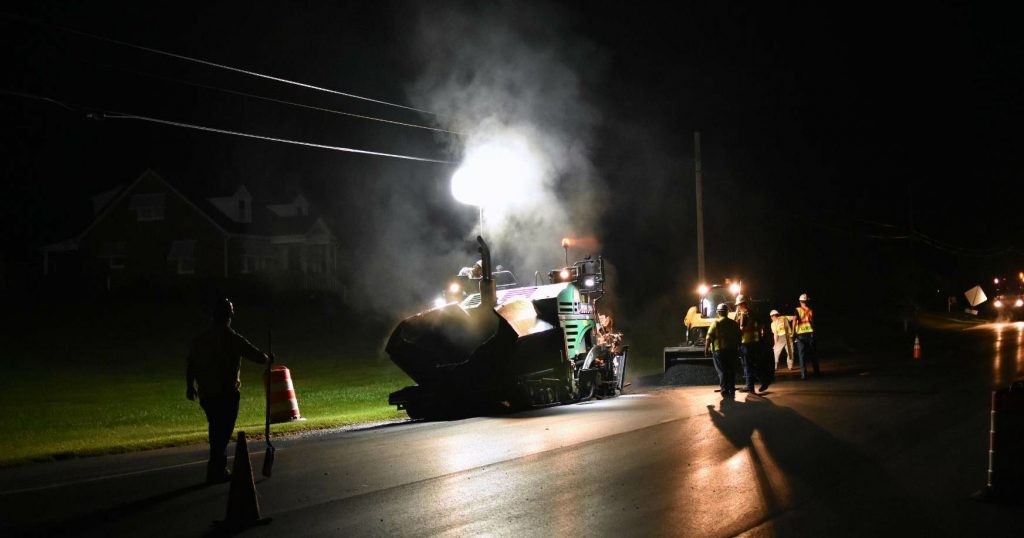
Last year, CJ Miller produced around 700,000 tons of asphalt, laying around 400,000 tons with its own crews.
The unique aspect of this job was that a portion of it would be used as a pilot project with the National Center for Asphalt Technology, the Federal Highway Administration, and MD SHA to achieve higher than normal density.
“The state picked this job because it was shovel-ready and it lent itself well to the goals of the pilot project,” Utz said. “There were large sections of the project that test strips could easily be completed in, with additional areas should we need them.”
In total, CJ Miller paved four different test sections, applying various levels of compaction by changing the rolling patterns and mix design:
- Normal mix, normal rolling pattern. The mix used was 12.5 mm, level 2, 4.8 percent PG 64S-22 binder. Three Hamm 120 sized rollers were used, each covering the mat with three complete passes up and back.
- Normal mix, additional roller. For this strip, everything was kept the same, except they added another Hamm 120 sized roller to allow for three additional passes.
- Higher AC mix, normal rolling pattern. The mix used was 12.5 mm, 5 percent PG 64S-22 binder. Three Hamm 120 sized rollers were used, each covering the mat with three complete passes up and back.
- Higher AC mix, additional roller. For this strip, the higher AC mix mentioned above was used, and a fourth Hamm 120 sized roller was added for three additional passes to this section.
To efficiently pave the test sections, the Westminster plant first produced the mix with higher AC content. The mix design was selected by MD SHA as the easiest way to increase ease of compaction. The plant was also sure to use the same aggregates.
At the jobsite, the crews then paved two of the test strips with the higher AC mix, one with a normal rolling pattern of three Hamm 120 rollers, each making three full passes up and back. For the second test strip, foreman Bryan Laughman added a fourth Hamm 120 roller, for a total of 12 full passes.
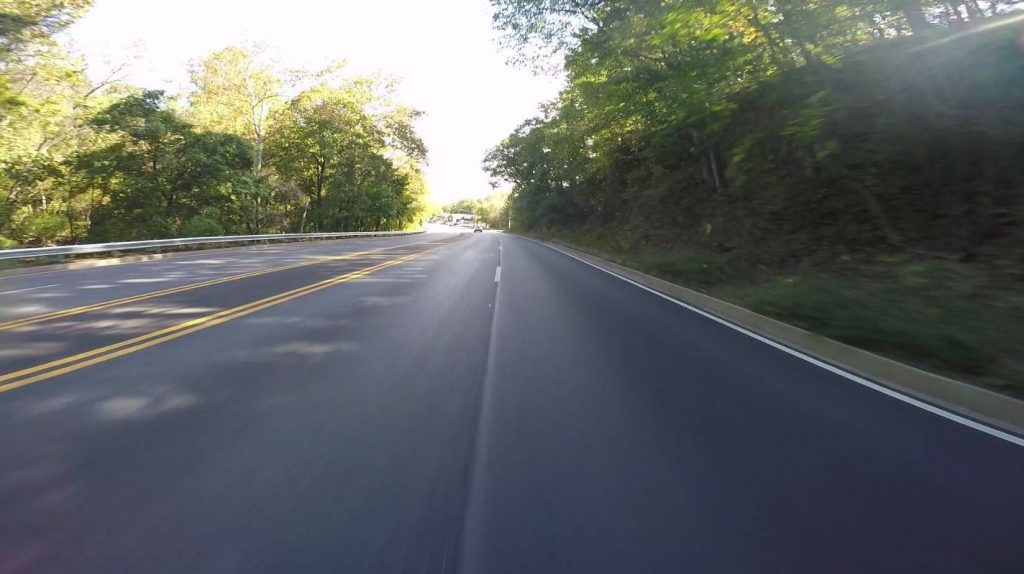
At this year’s MAA paving conference, CJ Miller received four of the conference’s 11 total awards, each for projects the company performed for the Maryland State Highway Administration
Then, the plant began to run its normal mix, and then paved two more sections, one compacted by three rollers and the other by four.
On the night of the pilot project, CJ Miller had a nuclear gauge and two extra quality control guys on site to cut nearly 40 cores: seven cores per test strip for a total of 28 cores on the pilot project, plus 10 additional cores for the overall project.
After testing, the control test strip cores’ density was determined to be 95.8. Utz said the best density was achieved on the section with higher AC and more compactive effort, yielding average compaction of 97.1 percent. MD SHA will continue to measure the long-term performance of the test strips over time.
In addition to earning them an award from MAA, the I-97 job also received incentives for density, ride quality and mix.
“The crews deserve the majority of the credit,” Utz said.
“The supervision of Roland Wilson, our paving superintendent, and Gene Thomas, our assistant paving superintendent, both of whom have been with the company for three decades or more, was instrumental in the logistics of the Rt. 97 project,” Utz added.
“Honestly, this company works as a team,” Utz said. “Producing a high quality end product takes effort, planning and personal investment from our employees.”
CJ Miller’s four recent awards from MAA prove that even after 60 years in business, the company motto, “If you do good work, you’ll never run out of work,” is alive and well.
